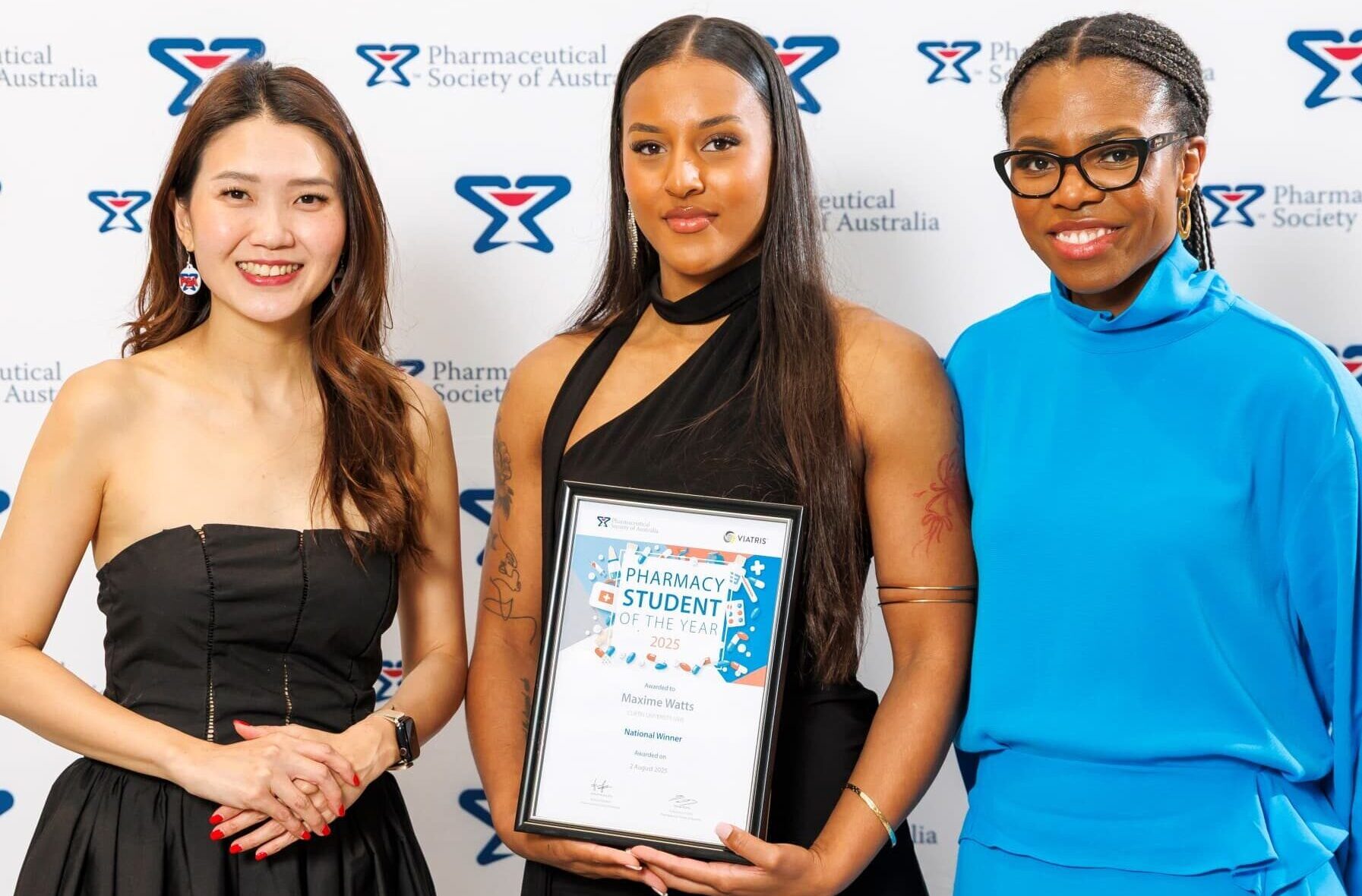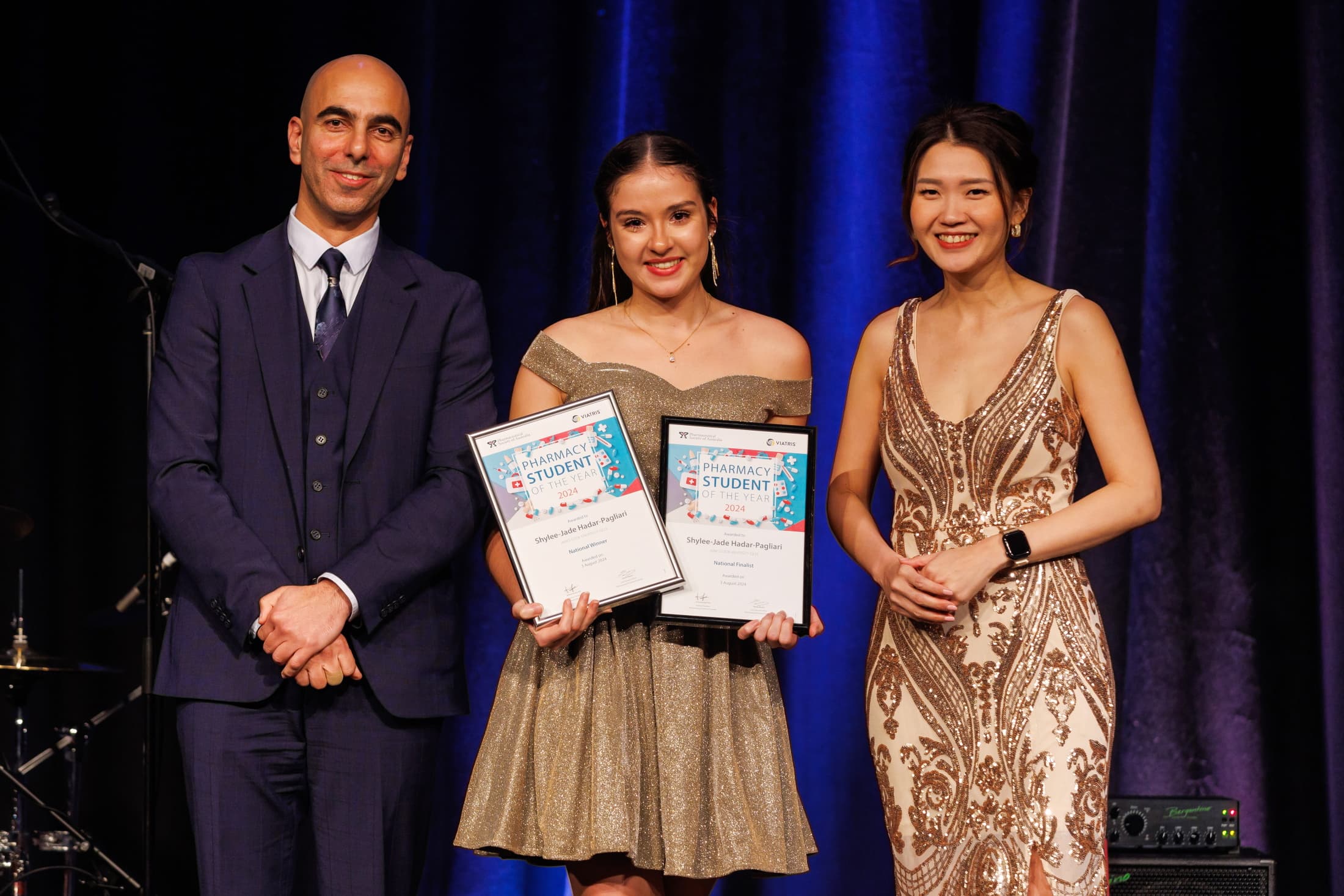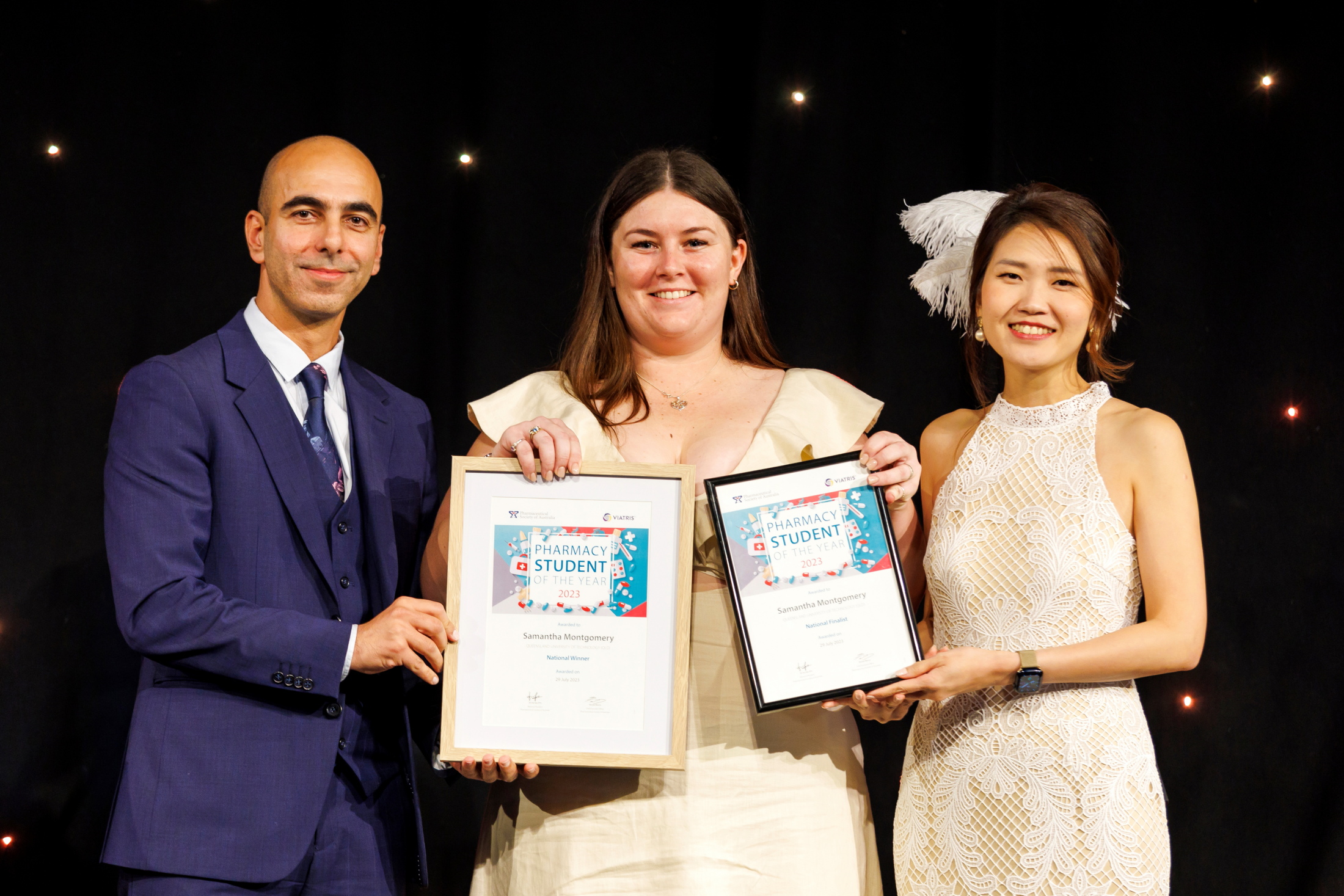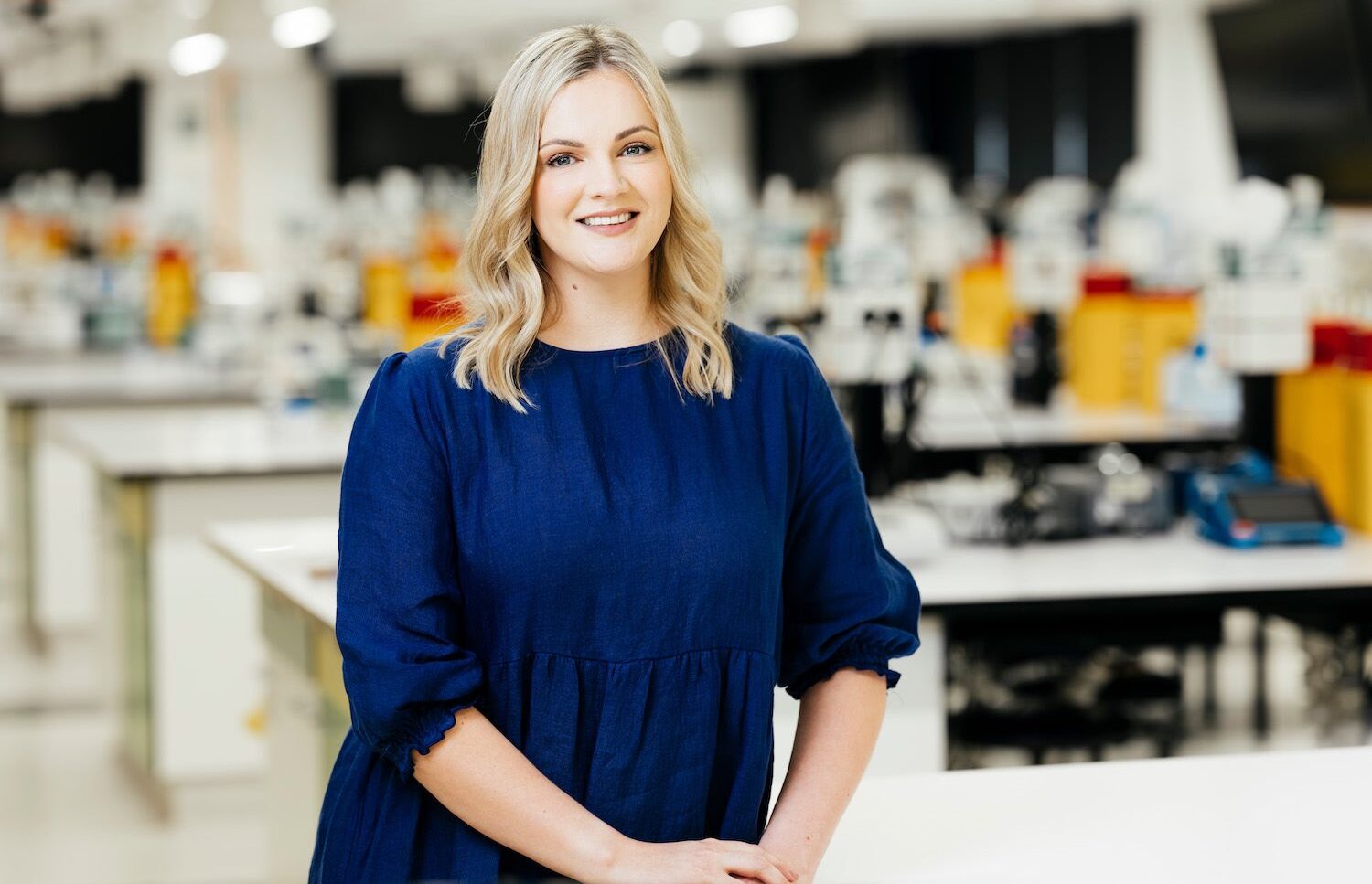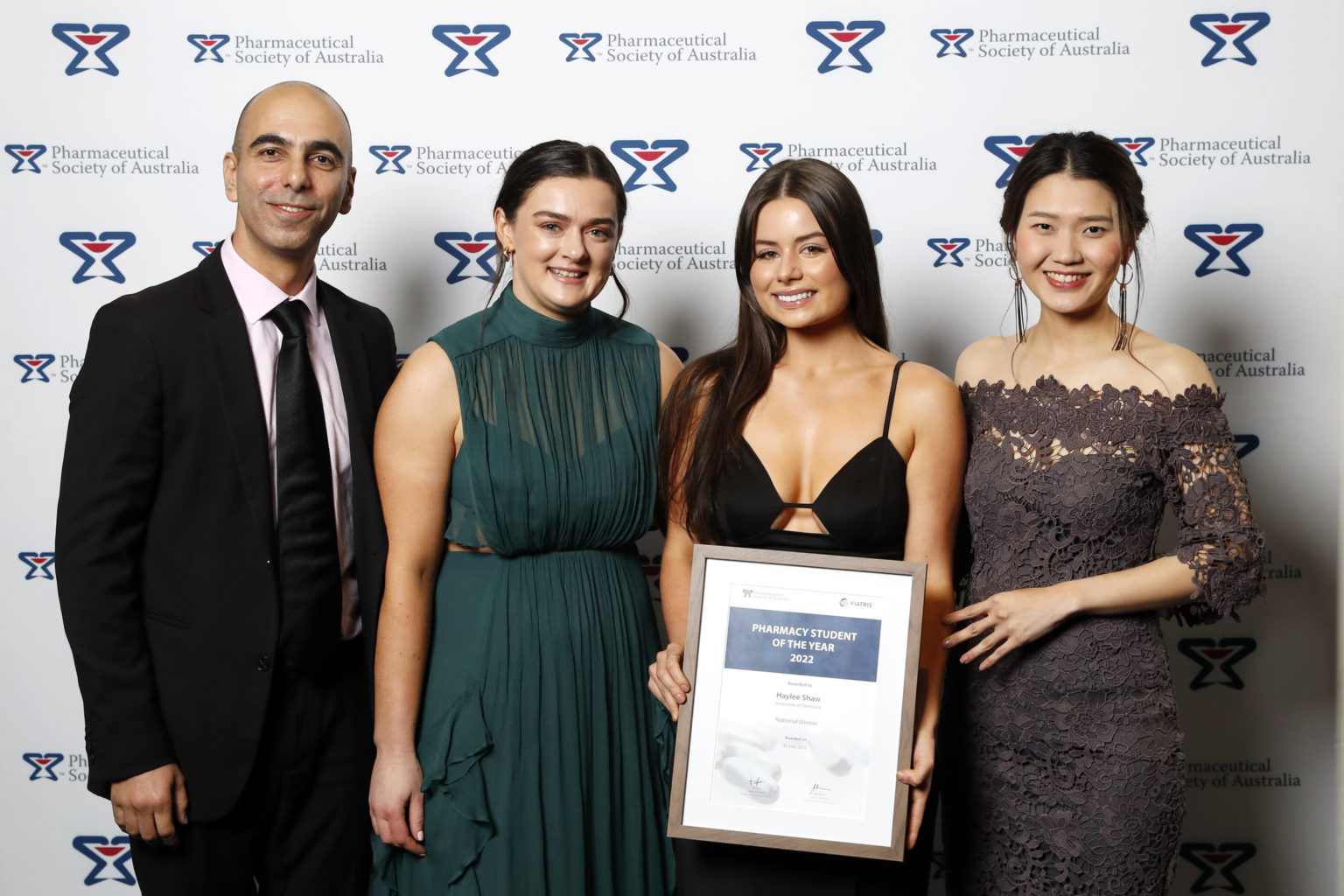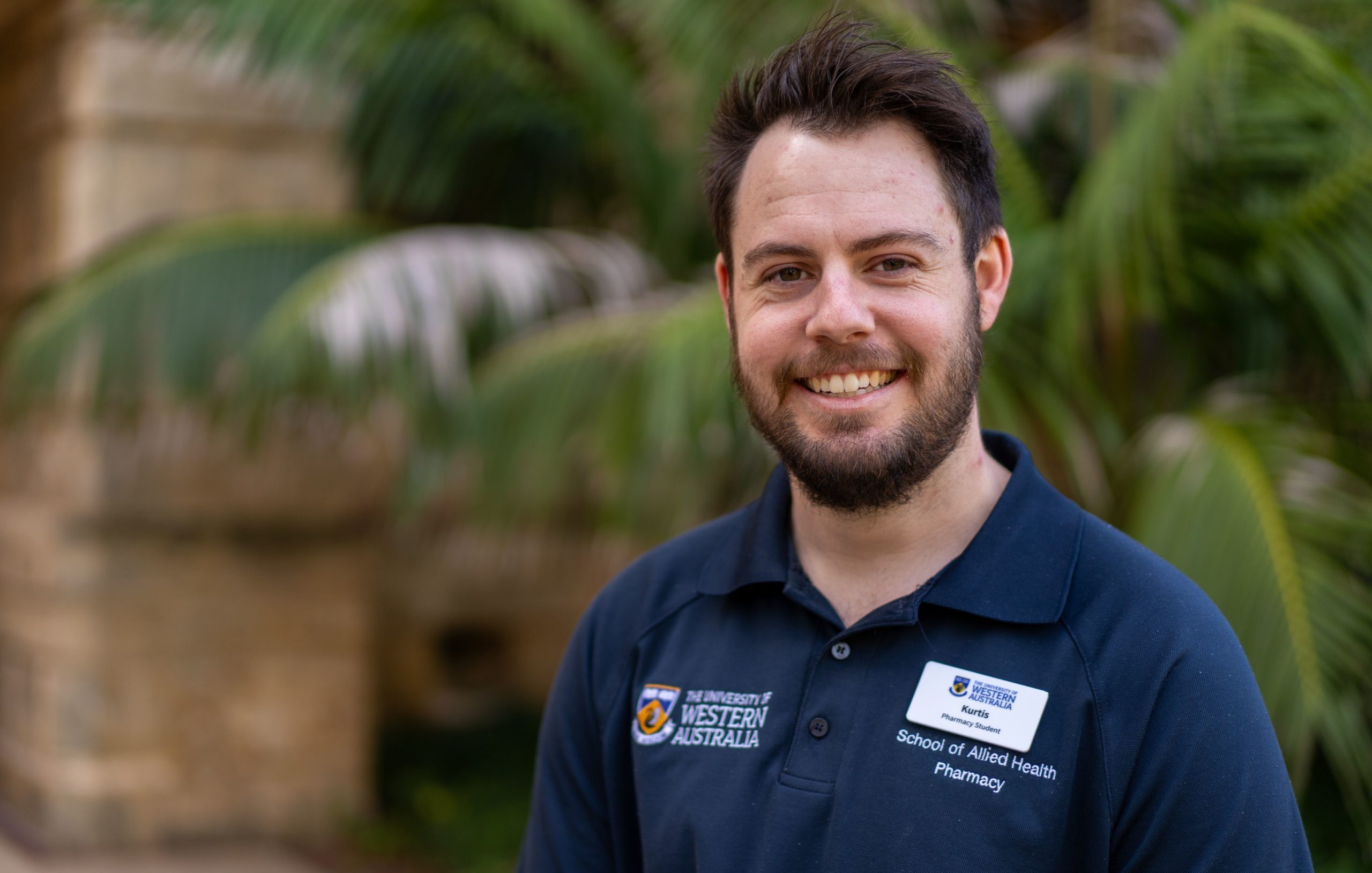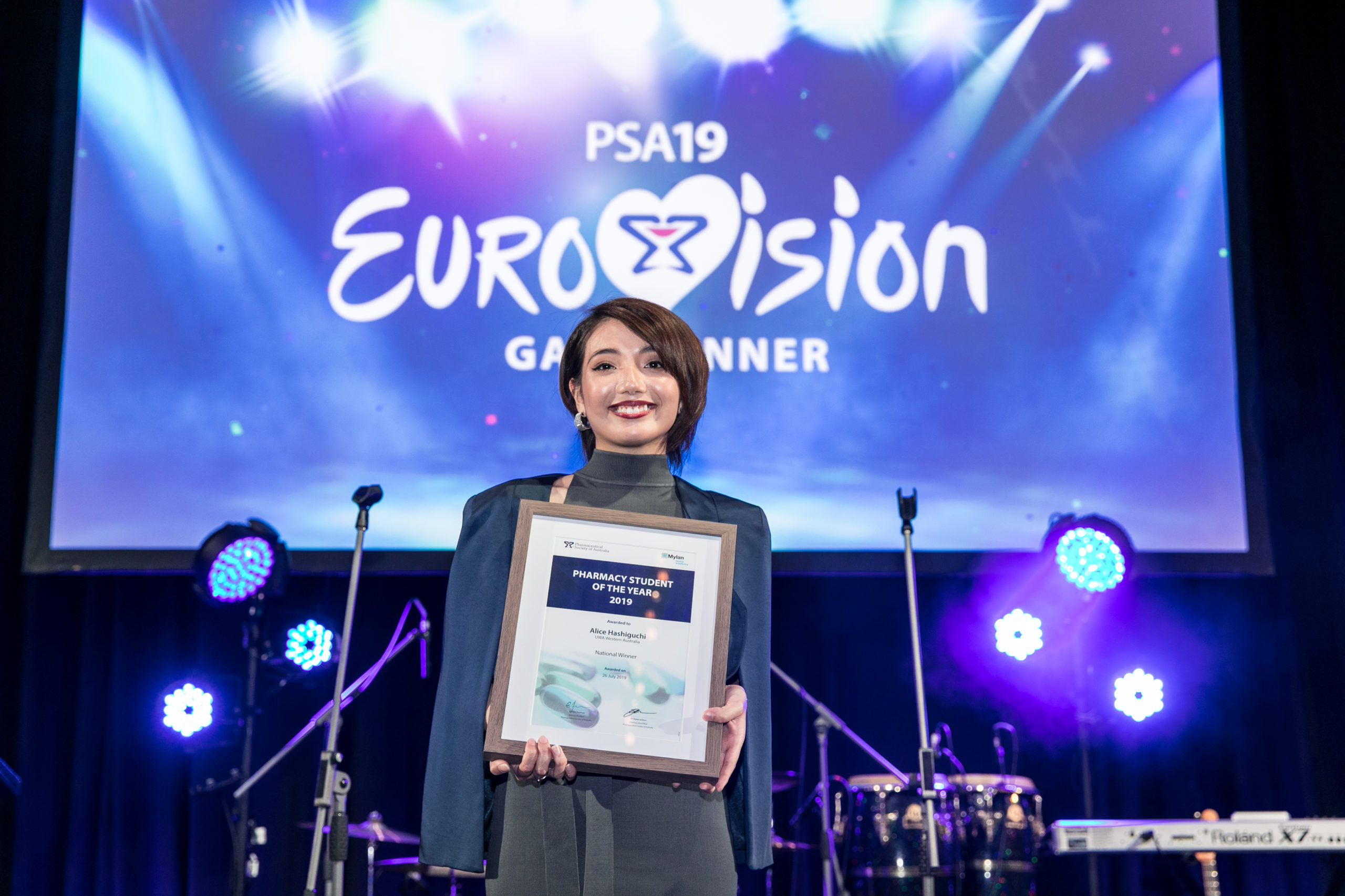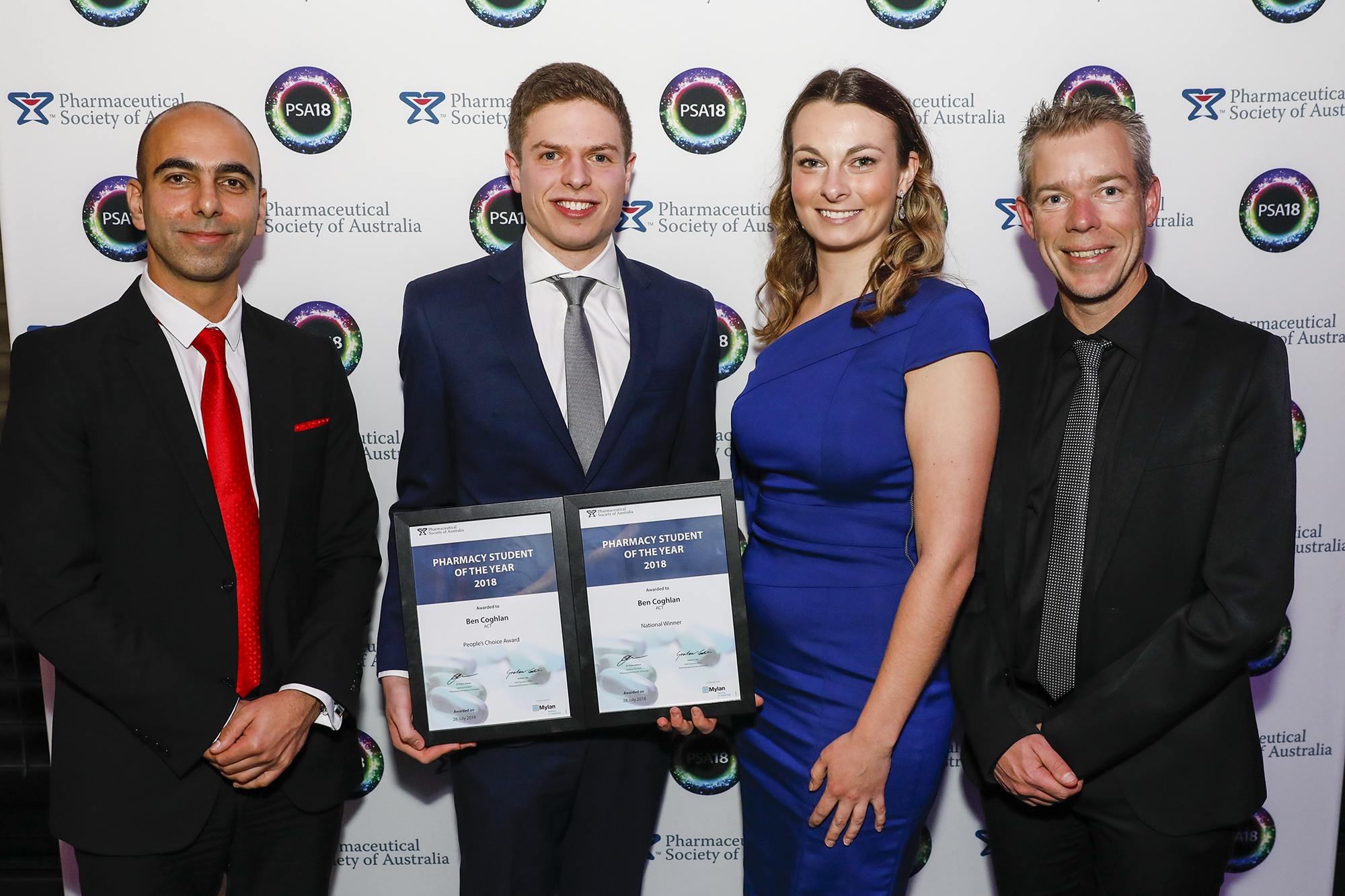The Pharmaceutical Society of Australia (PSA) develops the annual Pharmacy Student of the year (PSOTY) counselling competition. This competition is designed to showcase the counselling skills of final year pharmacy students from participating universities around Australia.
The PSA’s involvement is aimed at increasing student awareness of PSA and encouraging students to become active, life-long members of this vibrant organisation.
The PSOTY competition provides a platform for students to challenge their ability to impart accurate, evidence-based healthcare information and advice to patients using appropriate communication techniques. The competition is based around case scenarios that are designed to reflect real-life practice and to encourage and reinforce the role of the pharmacist as an essential healthcare provider.
PSA develops and clinically reviews PSOTY case scenarios (cases) for the NAPSA Wildcard, State/Territory and the Grand Final National competitions. The State/Territory finals are hosted by the PSA State/Territory Offices. The national final is held at the PSA annual national conference in July or August, and is where the pharmacy student of the year is ultimately decided.
In the PSOTY competition, students engage in a process similar to an objective structured clinical examination (OSCE) such as they would at the pharmacy board registration exams. The cases involve an interaction with a standardised patient (actor).The pharmacy student provides advice and guidance to this patient and recommends the most appropriate non-prescription medicine, or suggests another outcome such as referral to a general practitioner. A panel of 3–4, mainly practising pharmacists, judge the students’ performance.
